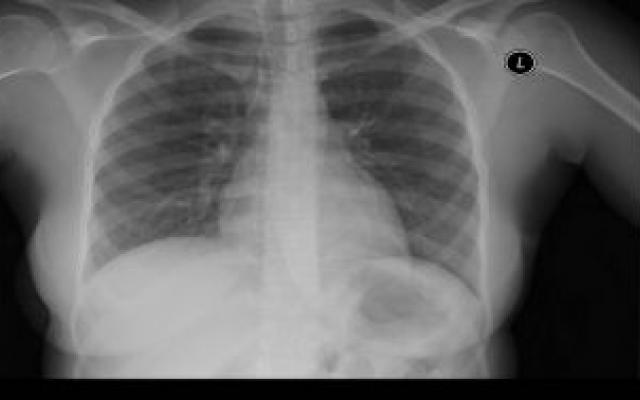Patiënten met een mogelijke longembolie worden in de dagelijkse praktijk regelmatig gezien. Bij ongeveer 20-30% van hen wordt de diagnose bevestigd.1 Tegenwoordig is in de klinische praktijk de diagnostiek van patiënten bij wie gedacht wordt aan een longembolie aanzienlijk versimpeld. De combinatie van een klinische beslisregel, zoals de wells-score, en D-dimeertest, gevolgd door een CT-pulmonalisangiografie (CTPA), sluit een longembolie veilig uit of toont deze juist betrouwbaar aan.1 De keerzijde van deze versimpelde diagnostiek is de enorme toename van het aantal CTPA-scans bij patiënten met een mogelijke longembolie. Naast de kosten van dit onderzoek is er ook het verhoogde risico op maligniteiten door de straling van de CTPA. De geabsorbeerde straling in de mamma bij een CTPA varieert van 10-190 mGy, afhankelijk van de grootte van de borst.2 Jonge vrouwen die zijn blootgesteld aan CTPA-straling hebben gedurende hun leven een verhoogd risico op borstkanker, met name bij herhaalde…
CTPA bij mogelijke longembolie

De Bruin and colleagues recently analysed the performance of the CTPA scan in patients with suspected pulmonary embolism. Their study shows that in a significant number of patients no abnormalities were found on a CTPA scan, a troubling finding given the radiation exposure. Young patients and ambulatory patients, in particular, often had a completely normal CTPA scan. Better stratification of patients with a high suspicion of pulmonary embolism is required, including evaluation of the value of clinical decision rules in ambulatory patients with suspected pulmonary embolism. In addition, the use of perfusion scanning, which involves significantly less radiation exposure, deserves further research in young people. Principally, a diagnostic strategy for pulmonary embolism comprising a clinical decision rule, followed by a D-dimer test if necessary, should be applied in clinical practice. This strategy will significantly reduce the number of CTPA scans showing no pulmonary embolism.
Conflict of interest: none declared. Financial support: the study regarding an age-dependent D-dimer test is funded by the Thrombosis Foundation Holland (‘Trombosestichting Nederland’).




Reacties